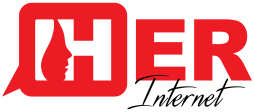Uganda’s New Social Media Monitoring Tool and What It Means for Structurally Silenced Womxn.
A growing number of digital rights groups warn against Uganda’s move to expand social media surveillance ahead of the 2026 elections.
On April 8th, 2025, the Daily Monitor reported that the Uganda Communications Commission (UCC) is moving forward with procuring a social media monitoring tool. While the government frames this as a public safety measure ahead of the 2026 General Election, this tool could become a direct threat to the digital rights and freedoms of structurally silenced womxn including journalists, womxn in politics, female sex workers, feminists, and grassroots activists.
A Pattern of Digital Repression in Uganda
Uganda has a well-documented history of digital shutdowns, especially during election seasons. In 2016 and 2021, the state blocked platforms, arrested critics, and shut down the internet. Laws like the Computer Misuse Act, originally meant to fight cyber-crime, have often been used to arrest journalists, activists, and everyday users for online speech. With plans to monitor activity across platforms like WhatsApp, Facebook, X (formerly Twitter), TikTok and Telegram, the threat is no longer just about what you say, it’s about being watched for existing, connecting, and resisting.
What This Means for Womxn Who Rely on Digital Spaces
For many womxn, digital platforms are spaces for survival. They offer room to share information, find care, build movements, and speak freely when offline spaces are unsafe. This new surveillance plan puts all of that at risk. Fear will push people offline. Speaking out may feel too dangerous. Networks that took years to build could start to disappear. Organizing for justice, healing, or survival becomes harder when you have to look over your shoulder every time you log in.
What Defenders Protection Initiative (DPI) Said
The Defenders Protection Initiative (DPI) raised alarm over this surveillance development. They warn that this move marks a dangerous shift toward institutionalized digital repression especially given Uganda’s history of social media shutdowns, digital censorship, and election-related crackdowns.
In response, DPI is:
- Building coalitions across civil society, tech, and legal spaces to resist digital repression.
- Hosting digital security clinics for HRDs, journalists, and CSOs.
- Offering emergency support to people already facing surveillance threats.
- Leading policy advocacy for rights-respecting digital governance.
What Uganda Minority Shelters Consortium (UMSC) Said
The Uganda Minority Shelters Consortium (UMSC), which supports homeless and marginalized communities, many of whom rely on digital spaces for survival, also issued a strong statement of concern. In their words:
“Social media is not just a communication tool, but a lifeline. It allows all of us to access services, build communities, express our identities, and raise awareness about the injustices we face.”
UMSC warns that this surveillance move could lead to:
- The silencing of already vulnerable voices
- Deepened mistrust between civil society and the state
- Profiling based on identity, opinion, or affiliation
They are calling for immediate transparency, inclusive dialogue, and protections for groups historically excluded from decision-making.
Our Commitment: Protecting Digital Freedoms
HER Internet stands with all those resisting this expansion of state surveillance. We believe digital platforms must remain spaces for expression, resistance, care, and connection, not channels for control.
We will continue to:
- Advocate for digital freedom and safety.
- Support structurally silenced womxn in defending their rights online.
- Partner with coalitions like DPI and UMSC to push back against oppressive tools and policies.
A free, inclusive internet is a necessity for everyone, especially those whose lives and truths are often pushed out of public view.

